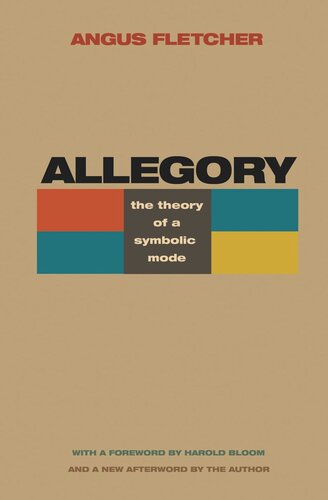

Most ebook files are in PDF format, so you can easily read them using various software such as Foxit Reader or directly on the Google Chrome browser.
Some ebook files are released by publishers in other formats such as .awz, .mobi, .epub, .fb2, etc. You may need to install specific software to read these formats on mobile/PC, such as Calibre.
Please read the tutorial at this link: https://ebookbell.com/faq
We offer FREE conversion to the popular formats you request; however, this may take some time. Therefore, right after payment, please email us, and we will try to provide the service as quickly as possible.
For some exceptional file formats or broken links (if any), please refrain from opening any disputes. Instead, email us first, and we will try to assist within a maximum of 6 hours.
EbookBell Team

4.7
76 reviewsAnyone who has ever said one thing and meant another has spoken in the mode of allegory. The allegorical expression of ideas pervades literature, art, music, religion, politics, business, and advertising. But how does allegory really work and how should we understand it? For more than forty years, Angus Fletcher's classic book has provided an answer that is still unsurpassed for its comprehensiveness, brilliance, and eloquence. With a preface by Harold Bloom and a substantial new afterword by the author, this edition reintroduces this essential text to a new generation of students and scholars of literature and art.
Allegory puts forward a basic theory of allegory as a symbolic mode, shows how it expresses fundamental emotional and cognitive drives, and relates it to a wide variety of aesthetic devices. Revealing the immense richness of the allegorical tradition, the book demonstrates how allegory works in literature and art, as well as everyday speech, sales pitches, and religious and political appeals.
In his new afterword, Fletcher documents the rise of a disturbing new type of allegory--allegory without ideas.